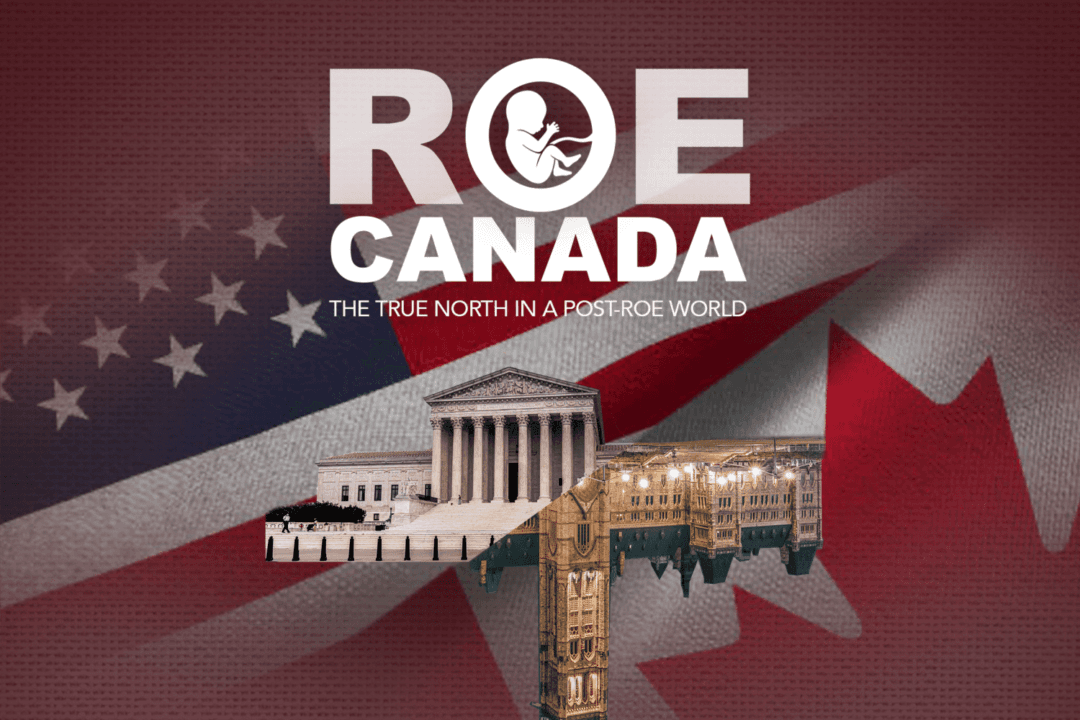Two years after Roe v. Wade was overturned in the United States, a newly released Canadian film suggests that Canada’s abortion regime could also be curtailed through pro-life activism.
In the 80-minute documentary “Roe Canada: The True North in a Post-Roe World,” Canadian pro-life activists Josie Luetke and Ruth Robert, both in their 20s, travel through the United States and Canada seeking answers to their questions about ending abortion in Canada.





